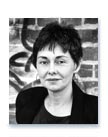   |

Nancy Scheper-Hughes, PhDAs a critical medical anthropologist Nancy Scheper-Hughes researched and written extensively on Ireland, Brazil and South Africa. In particular, she is concerned with the violence of everyday life from an existentialist, feminist, and politically engaged perspective. Her first anthropological study in County Kerry, rural Ireland (to which she returned in 1999) concerned the social and cultural dimensions of mental illness among bachelor farmers in rural Ireland. Later in Boston she undertook a study of the deinstitutionalization of those with severe mental ill-health. Between 1982-1990 Scheper-Hughes conducted extensive field research in the shantytowns of Northeast Brazil on infant mortality, the 'madness of hunger,' the medicalization of social and political trauma, and the experience of motherhood, deprivation, and moral thinking and practice. She has also researched and published on AIDS, the social body, and sexual citizenship in Cuba and Brazil, and on the role of violence, 'truth" and reconciliation' during the transition to democracy in South Africa. Most recently, she has written on subjects ranging from the cultural politics of international adoption, Munchausen-by-Proxy as a weapon the weak, to the execution of Brazilian street children, the global traffic in human organs and the use of living unrelated donors in human transplant surgery as a form of sacrificial violence. Scheper-Hughes's examination of structural, "everyday", and political violence has encouraged her to develop a unique style of critical theory and reflexive ethnography, which has been broadly applied to medicine, psychiatry, and to the practice of anthropology. In 1999 she founded, with Prof. Lawrence Cohen, Organs Watch, a programme created to investigate human rights violations in the harvesting, sale, and distribution of human organs and tissues. |
| � |